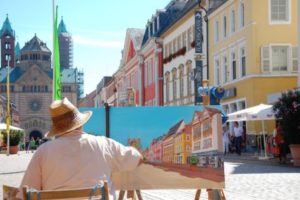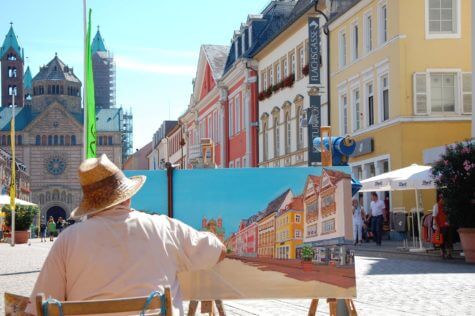LONDON — Ever hear someone describe something completely differently than you would?
According to a recent study from the University College London and Bangor Universities, this could have to do with what you do for a living. In other words, our jobs affect the way we see and explain the world, particularly when it comes to artists and architects.

“Our study has provided evidence that your career may well change the way you think,” says Dr. Hugo Spiers of UCL Psychology & Language Sciences and senior author of the study in a press release. “There’s already extensive research into how culture changes cognition, but here we’ve found that even within the same culture, people of different professions differ in how they appreciate the world.”
The study of nearly 50 painters, sculptors, and architects found each discipline comes with a unique way of seeing things.
In the study, representatives from each profession were asked to describe three images: a painting of St. Peter’s Basilica, a Google street view photograph, and a computer generated landscape. Researchers also asked participants how they would explore and change the environment in each image. They then analyzed their answers using a special technique developed to reveal subconscious word choices.
Results showed the “spatial professionals” approached the scenes in ways that seemed influenced by their jobs. For example, architects usually referred to the “end” of an area, while painters would call the same location the “back.” Researchers said such small differences could have big implications about the way people think.
When compared to a control group of non-artists, the spatial pros had in common overall longer and more elaborate descriptions. The paper’s authors said this went beyond a lack of expert vocabulary.
“Indeed, our control groups did not experience any problems with the task—but their linguistic representations were less systematic and, on the whole, less rich than those of spatial professionals,” the authors wrote.
While this might not be the most surprising finding, it is some of the first hard evidence of the phenomenon.
The researchers said they hope their work will lead to further studies involving a greater variety of jobs. Hopefully this could lead to improving communication in the workplace, or between couples with different careers.
The study was published last month in the journal Cognitive Science.
